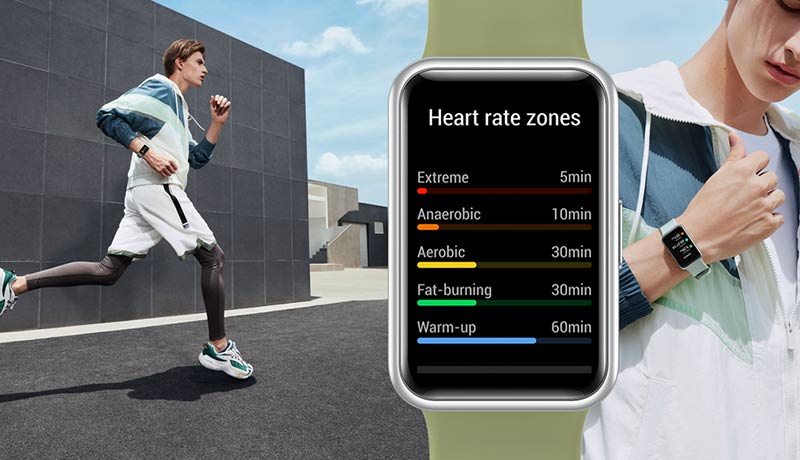Summary Table
| Section | Key Points |
|---|---|
| Introduction | Smartwatches are no longer just fitness trackers—they have evolved into sophisticated health monitoring devices. |
| Advanced Health Tracking Capabilities | Smartwatches now track heart rate, ECG, SpO2, sleep patterns, stress levels, and more using AI-driven analysis and sensors. |
| Role of AI and Machine Learning | AI helps smartwatches predict health trends, analyze user data, and offer personalized health recommendations. |
| Benefits of Continuous Health Monitoring | Continuous health tracking allows for early detection of health issues, remote healthcare, and greater personal awareness. |
| Privacy and Ethical Concerns | Issues around data privacy, security, and the ethical use of sensitive health information must be addressed as smartwatches become more advanced. |
| Conclusion | Smartwatches are revolutionizing healthcare by providing personalized, real-time health data, but concerns over data privacy and accuracy must be tackled. |
Introduction
Over the past decade, smartwatches have transitioned from simple step counters to powerful health monitoring devices capable of tracking a wide range of biometric data. As health technology advances, smartwatches are becoming central to modern healthcare systems by providing real-time insights into users’ health.
This evolution is transforming not just how people manage their well-being but also how healthcare providers interact with patients. With continuous monitoring and AI-driven data analysis, smartwatches are leading the way in personalized, preventative healthcare.
Advanced Health Tracking Capabilities

Smartwatches today can track various health metrics with unprecedented precision, thanks to cutting-edge sensors and technology. Key features include:
- Heart Rate Monitoring: Using photoplethysmography (PPG) sensors, smartwatches measure heart rate to provide insights into cardiovascular health. Advanced models also offer electrocardiogram (ECG) functionality, which can detect irregular heart rhythms.
- SpO2 Monitoring: Blood oxygen levels (SpO2) are monitored by smartwatches to detect conditions like sleep apnea or respiratory issues, which can provide crucial data during COVID-19 recovery periods or high-altitude activities.
- Sleep Tracking: Advanced sleep monitoring systems measure sleep stages and cycles, giving users insights into sleep quality and duration. Smartwatches also track disturbances, which can be linked to stress or health problems.
- Stress Detection: Smartwatches can measure stress by analyzing heart rate variability (HRV), often providing relaxation techniques or breathing exercises to help reduce stress levels.
- Fitness and Activity Tracking: These features include step counts, calorie burns, and workout modes that give a holistic view of a user’s physical activity.
The Role of AI and Machine Learning in Smartwatch Health Monitoring

One of the most exciting advancements in smartwatch technology is the integration of AI and machine learning (ML). These technologies enhance the accuracy of health monitoring by analyzing vast amounts of data collected from users. Here’s how they’re changing the game:
- Predictive Health Insights: By analyzing patterns in heart rate, sleep, and activity data, AI can forecast potential health issues such as irregular heartbeats or chronic stress. This helps in early diagnosis, allowing users to seek medical help before symptoms worsen .
- Personalized Health Recommendations: AI algorithms provide personalized health recommendations, such as tailored workout plans or dietary suggestions based on the user’s health data, which can prevent future health problems .
- Remote Health Monitoring: For patients managing chronic conditions, AI allows smartwatches to send real-time health updates to doctors. This feature has become invaluable for those needing frequent health monitoring but limited access to healthcare facilities .
Benefits of Continuous Health Monitoring
Continuous health monitoring offered by smartwatches can lead to significant improvements in personal health management and healthcare systems. Some of the key benefits include:
- Early Detection of Health Issues: Continuous data collection allows smartwatches to identify early warning signs of diseases like heart arrhythmias, high blood pressure, or even sleep apnea . Users can take preventative measures, avoiding serious health complications.
- Personalized Care Plans: With round-the-clock data collection, healthcare providers can create personalized care plans based on the real-time health data from smartwatches. This helps in managing chronic conditions like diabetes or hypertension effectively .
- Convenience and Accessibility: Smartwatches make health tracking accessible to everyone. You no longer need to visit a clinic to get basic health readings. This convenience is transforming how people think about health, encouraging more proactive care.
Privacy and Ethical Concerns
As smartwatches become more integrated into our lives, questions around data privacy and ethics have emerged. Health data is sensitive, and there are growing concerns about how this information is stored, shared, and used. Issues include:
- Data Privacy: With the constant collection of personal health data, users must be assured that this information is stored securely. Cybersecurity threats or data breaches could expose highly sensitive health information .
- Ethical Use of Health Data: Companies must ensure that collected data is used ethically. For example, data should not be shared with third parties without explicit consent. Stricter regulations may be necessary to protect consumers’ rights.
Conclusion
Smartwatches are revolutionizing health monitoring by offering real-time, personalized insights into users’ well-being. As they continue to evolve, they hold the potential to further integrate with healthcare systems, providing patients and doctors with valuable data that could transform how we approach preventive healthcare.
However, along with the advantages come critical challenges, especially concerning data privacy and accuracy. Ensuring these devices maintain their reliability and secure users’ sensitive information will be key to their long-term success in health monitoring.
Read also:
How Wearable Tech Is Changing Fitness Tracking
IoT smart homes: The Impact of IoT on Modern
